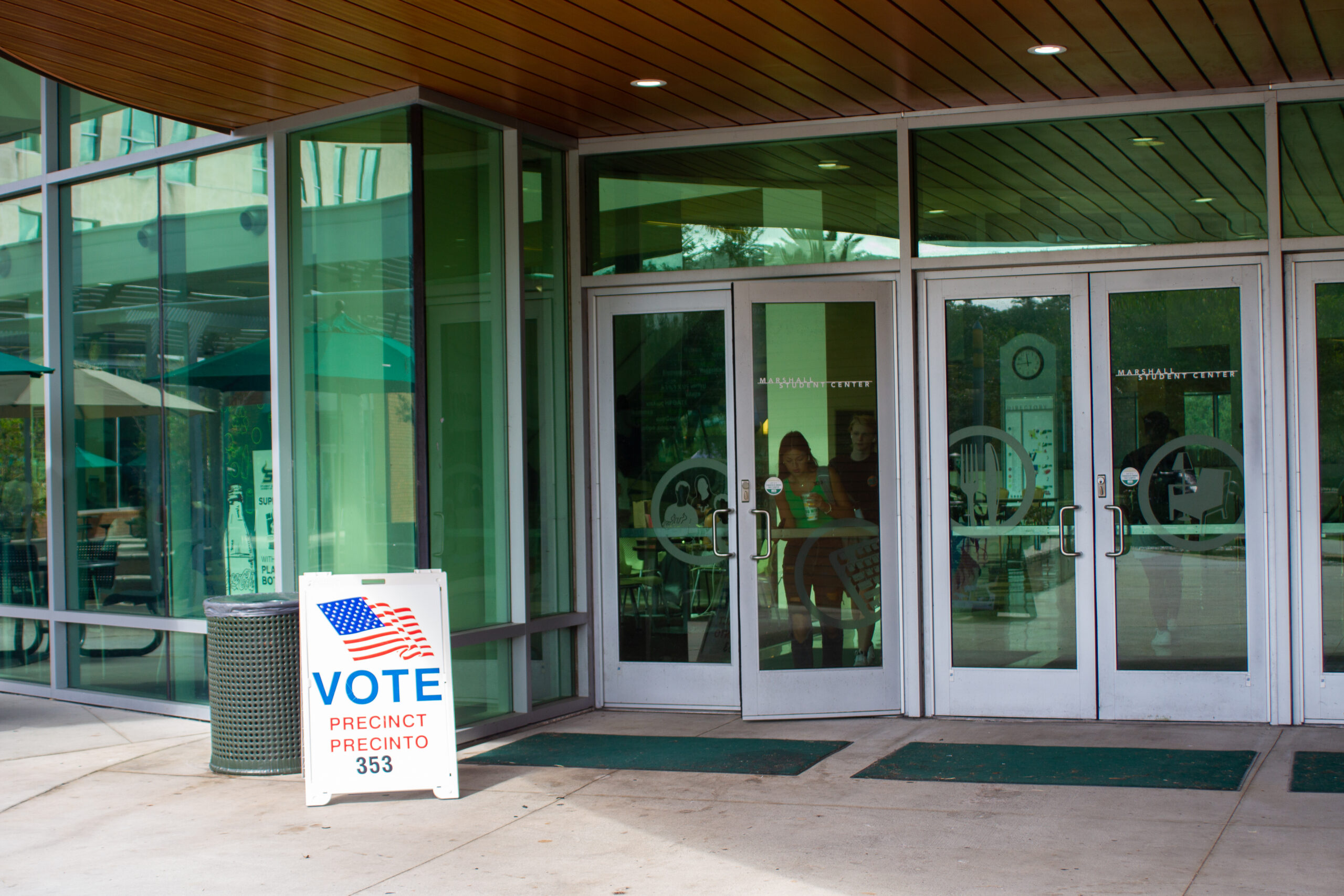Students, faculty cast midterm election ballots

For senior music education major Rachel Hertz, voting in the November midterm election represents not only a civic duty, but a movement toward change.
“I’m just very worried about the economy, we’re in late-stage capitalism and everything is plummeting,” she said. “It’s like nobody wants to work where you’re not getting paid for what you should be working for. You can’t buy a house even if you were to work, what’s the point?”
Hertz was one of the students and faculty who gathered on the third floor of the Marshall Student Center on Tuesday to cast their votes in the Florida midterm election.
Given Hertz’s ambitions to become a teacher, she said causes of concern throughout the U.S. — such as increasing wealth inequality and political polarization — make her fearful for the future if the current state of politics remains unchanged.
“Florida is going to be underwater in like 20 years and nobody cares about the climate crisis. Politicians keep overturning legislation that would help the climate crisis, so that worries me on a geographical scale,” she said.
Precinct 353’s number of registered voters reached 420 as of 2022, of which 215 are Democrats, 73 Republicans, 127 with no party affiliation and five belong to other parties, according to Voter Focus.
Freshman business finance major Bryan Payes’ motivation to vote stemmed from a desire to make his voice heard. Rather than supporting politicians from afar, such as on social media, Payes said voting is a necessary way of making an impact on political institutions.
“I think everyone should express their opinions and not … just sit at home,” he said. “You should make sure that you’re heard. Everybody should go out and vote just because it’s important that you have visibility to vote, especially in this country. It may not be a right in other countries, but you have it here.”
Minorities who historically have been marginalized, however, might view voting as a vehicle for necessary social progress, according to freshman communications major Alexa Malberg.
“An issue people really need to worry about is when it comes to women’s health rights, reproductive rights and the rights of people of color. Too many people are discriminated against and often, like their rights, are really at risk right now,” she said. “I think people need to get a look at the bigger picture rather than the nitpicky things that kind of invalidate these spaces.”
The Supreme Court’s overturning of Roe v. Wade in June also was a major point of contention for some voters. Speaking on how she also was motivated to vote due to the prevalence of health disparities women face, Hertz added she fears protecting women’s reproductive health will become an issue of the past unless change is made.
“I’m greatly disappointed in the overturning of Roe v. Wade and Ron DeSantis’ support of the overturning,” she said. “All of that just kind of goes against my moral compass of wanting to teach the future generations in this state, this country and just being a woman and wanting autonomy of my body.”
A rise in political polarization has resulted in increased conflict among members of the American public, according to junior biomedical sciences major Elaine Son. Looking toward the future, she said she hopes political institutions can become more representative of the interests of the general public.
“I think there’s an increasing relationship between corporation and government and church and state, which I feel like should be separate,” she said. “There needs to be a lot of push to separate the two and to be able to make decisions concerning an accurate representation of the population rather than just a select high few.”
College students might feel discouraged by the current state of politics in the U.S., but Son said it shouldn’t discourage them from attempting to be agents of change. Although disparities in areas such as income and health continue to worsen, she added electing politicians eager to find solutions should serve as a motivating factor to vote.
“I do hope that there’s more change to be made,” she said. “There’s a lot of the disparities in our community and I hope that the voting reflects actual change instead of being stagnant and complacent … with all of the things that we could improve on.”






